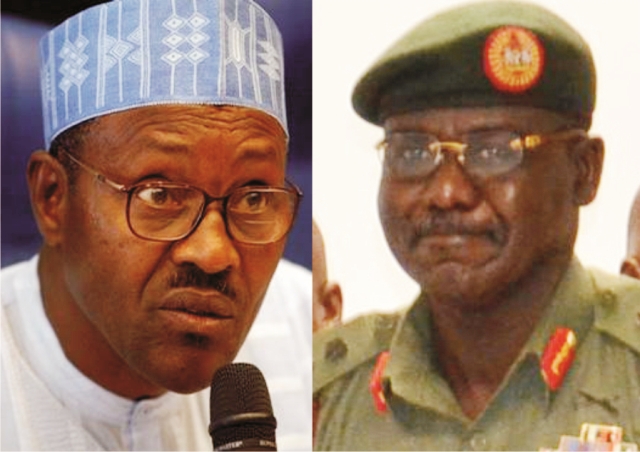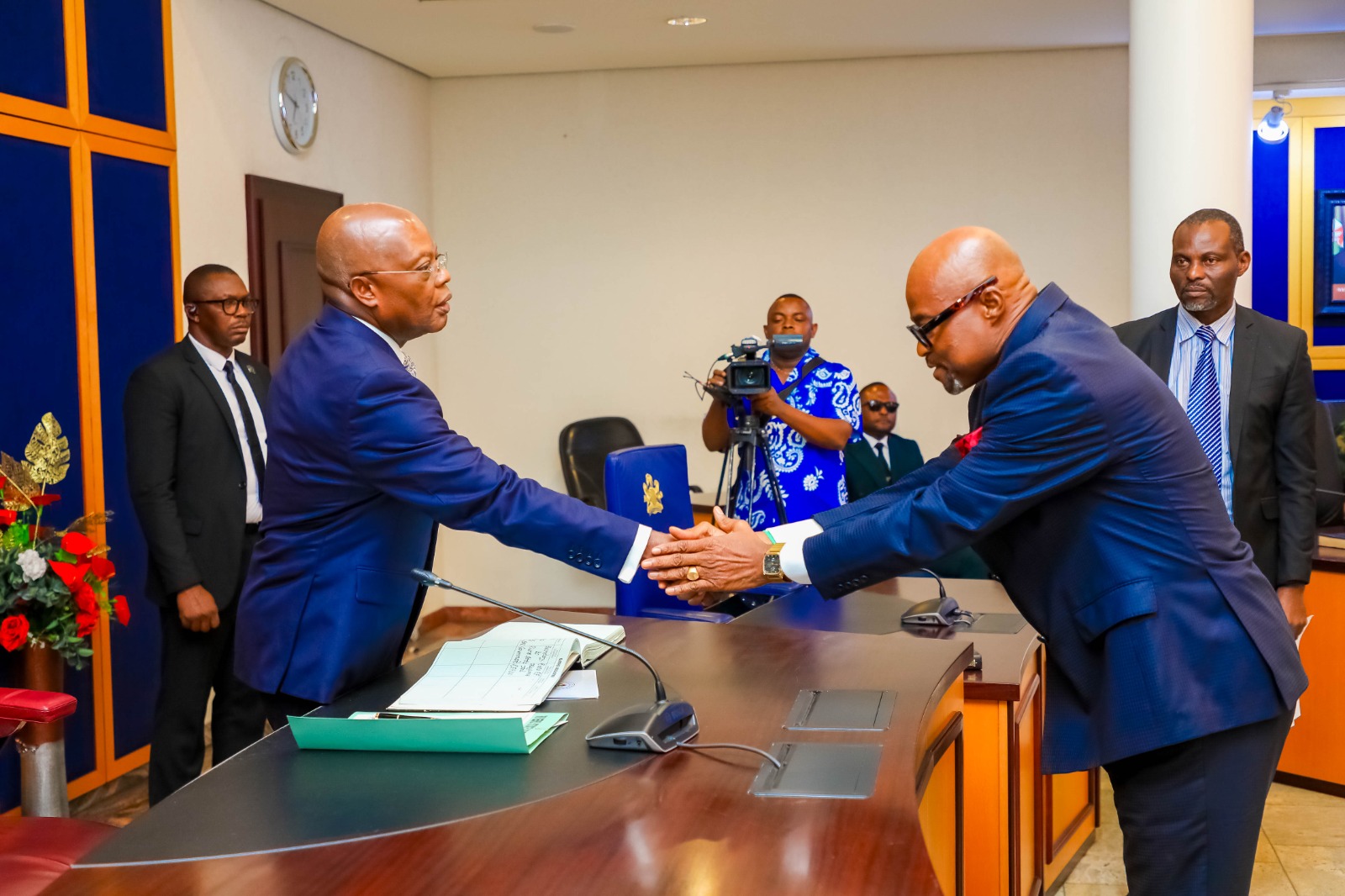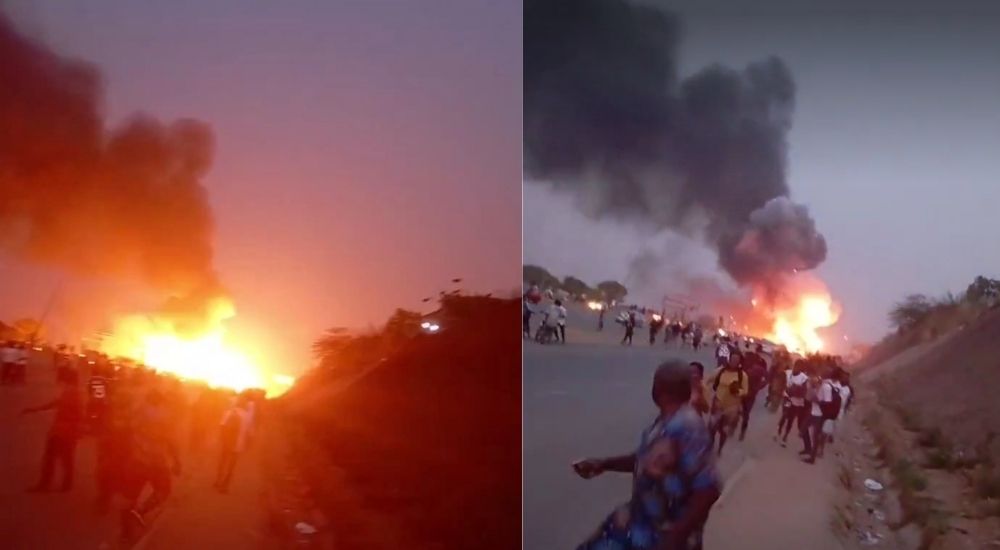Featured
Again, The Niger Delta Issue …A Call For Honest Dialogue

Rather than abate, from little known Niger Delta Avengers (NDA), the fresh insurgency in the oil rich Delta is giving birth to more and more groups. Although the leadership, profile and membership of such insurgent gangs still remain foggy, there are growing concerns that all may not be well in the area and by extension Nigeria.
When the NDA started its threats of attacking oil production facilities, it was dismissed with a wave of the hand until Agip and Chevron were hit in two separate attacks. Government’s immediate reaction was an order from the Commander-in-Chief, to the Military High Command to crush the militants.
That hurried reaction did not take into cognizance the currents and history of Niger Delta militancy, its threat to the economic profile of the country and how the Yar’Adua Presidency chose the amnesty option. It did not also consider the inherent danger such face-off, involving oil facilities and concomitant pollution would further endanger the environment and lives of the people. Also not put into proper perspective was the likelihood of civilian casualties, destruction of key public institutions and further aggravation of the crippling economic situation.
It was for all these that notable Nigerians called on the Federal Government to quickly consider and initiate dialogue, rather than use of force. They posited that such military posturing would rather than solve the impasse, aggravate it and return Nigeria back to the past when its oil production recorded its historical lowest.
Another option canvassed by many was a return to history, identify the wrongs associated with the forced amalgamation of 1914, and see how component parts of the ‘union’ today known as Nigeria would be made to have a sense of belonging and true nationhood. Appraising prevailing realities, influential Nigerians, like legal doyen, Prof. Nwabueze and former Vice President Atiku Abubakar, called for the restructuring of the Federation, in line with prevailing realities, as the present federal system being operated has failed to meet the yearnings and aspirations of the stakeholders.
Such a restructuring should make for stronger and economically more viable states as opposed to bigger centre, which negates true federalism. In such circumstance, each federating unit shall be encouraged to create its own resource base, develop and manage such resources and pay tax to the centre, as opposed to the present situation where all states depend on the oil from the Niger Delta for their survival and monthly rush to Abuja for hand-outs.
Those notable Nigerians insist that every state in the Federation has sufficient resources to develop and manage for growth. The problem is the laziness created by the oil which States now consider their meal ticket.
The strongest argument is that the central government is too large, expensive, over-reaching, inspiring and indeed greedy in the distribution of national resources. Its powers should be divested to reflect the true tenets of federalism.
Some of these arguments were captured during the last national conference which produced a report that many believed could address some of the agitations today creating insecurity in the land. Many have therefore called on the Buhari Presidency to look at the report with a view to implementing it.
But the body language of the President does not portray any iota of urgency. In fact, the Presidency has not as much as commented on the various issues raised by well-informed Nigerians.
It is perhaps that silence that has evoked the recent call by a new militant group, for a referendum, to determine the sovereignty of Nigerians. From insisting that major oil companies left the Niger Delta and calls for a revocation of the oil blocs allocated to prominent Northern elites, the militants are today calling for resource control. The militants now insist that the Niger Delta should be allowed to manage its resources, bear the consequences of the environment and pay taxes to the centre. Alternatively, a referendum be conducted to ascertain whether the Niger Delta still wishes to remain in the Nigerian Federation.
Unfortunately, rather than address the danger which this new line of debate holds, some Northern Senators have again raised the question: Where was the money used in developing oil in the Niger Delta sourced from? Their argument was that proceeds from agriculture and other resources from other lands together formed the capital to develop crude oil in the Niger Delta.
Really? How much? In those years of the groundnut pyramids, the regions enjoyed nearly 100 per cent derivation and resource control while the centre survived on taxes even from oil palm produced in the South East and South-South areas.
Besides, the Federal Government did not unilaterally develop crude oil. It was counterpart funding with major oil production multi-nationals who capitalised on the unholy marriage to short-change the Niger Delta. In those days, the argument of the Northern elite was that oil was a gift from God and belonged to no one in particular.
With such mindset, virtually every military regime, predominantly headed by Northerners turned natives of the oil bearing states into beggars while resources accruing from oil sales were used to develop major Northern cities.
The question still remains, how much was voted to develop crude oil? How much was the cost of building Abuja alone? How much profit has the central government made from its investment?
Everywhere in the world, ownership of land also determines ownership of resources there in. Nowhere in the world are land-owners, totally denied ownership of the treasures buried beneath. It is only in Nigeria where land belongs to the Niger Delta people but the oil buried there in, for all.
With civilisation and education, those mundane arguments can no longer hold water. Reality is that government must re-negotiate the terms of engagement with land-owners or investors may reconsider new investments in more conducive climes.
Silence on the part of the Federal Government is no longer healthy to the debate. Government must take a position and determine next line of action to douse the impending rift. From the stand point of the new militant groups, nothing short of resource control will bring peace. This means putting the entire area at risk in the event of arms confrontation or guided attacks on oil facilities.
The Buhari Presidency should take urgent steps at addressing the growing insurgency in the South-South, the increasing protestations, and sense of marginalisation in the South-East, the pressing sense of insecurity caused by rampaging herdsmen in the South-West and bring an end to Boko Harm in the North-East.
All these are battles that must be fought and won using the lean resources available to government. Allowing such funds to be depleted even further on account of ego, shame and pride, or a hurried resort to armed combat would indeed be injurious to the nation and its people.
This is why the Buhari Presidency must heed the advice of statesmen that the report of the last National Conference be revisited or outright restructuring be initiated. That is the wise thing to do.
While this is awaited, the militants should realise that the planned war is not against the same people whose interest it professes to champion. That each attack further degrades the environment and the ecosystem and by extension further threatens the people’s occupation of fishing and farming.
They must therefore embrace cease fire and allow dialogue so as to let the conversation flow freely. It should not be all about threats and violence, sometimes, maturity and commonsense should play their roles.
My Agony is that the comments of some Northern Senators could incite violence, rather than abate it, for true dialogue to take place. That’s how greed drives people to self-destruction.
Perhaps, they should be told, “strength and wisdom are not opposing values. They complement each other,” according to former US President Bill Clinton.
Soye Wilson Jamabo
Featured
Bring Your Wealth Of Experience To Governance, Ibas Tasks New SSG

The Sole Administrator of Rivers State, Vice Admiral Ibok Ete Ekwe Ibas (rtd), has charged the new Secretary to the State Government (SSG), Prof Ibibia Lucky Worika to bring his wealth of experience to bear in governance of the State.
Vice Admiral Ibas (rtd) gave the charge shortly after swearing in the new SSG at the executive chambers of Government House on Wednesday night.
The Administrator who congratulated Prof Worika on his appointment said the choice was not merely an administrative decision but a statement of intent.
Vice Admiral Ibas (rtd) explained that the new SSG has an unparallel expertise in law, policy and international governance, which align perfectly with the mission to restore law, order, integrity and public trust in Rivers State.
He said: “To our new SSG, the task ahead is onerous, but your track record leaves no doubt in our minds that you will prove your mettle. Rivers State needs your intellect, grit and unweaving dedication. Together, we will write a new chapter of progress for this great state.
“Prof Worika’s role will be critical in driving this vision, ensuring that every policy, every decision and every action is in consonance with this administration’s mandate to restore law and order, stabilize the polity and to create the necessary conditions for the restoration of democratic institutions and representations.”
Vice Admiral Ibas (rtd) pointed to his maiden address to Rivers people wherein he emphasised that his administration will be committed to delivering an effective governance that is anchored on transparency, accountability and service.
He therefore, enjoined the new SSG to brace up to the demands of his office, and offer his best service as required while also working cooperatively with civil servants.
Vice Admiral Ibas (rtd) said: “You have no time to settle down. You must roll up your sleeves and get to work with the team.
“Our civil servants with whom we will work closely to run this administration are critical stakeholders and we must work with them to ensure that the state continues to function effectively during this administration.
“To the Permanent Secretaries and civil servants as a whole, once more I will ask your kind cooperation and support as we work to achieve our objectives at this time,” he added.
Featured
I Am One Of You, Sole Administrator Tells Rivers People …Warns Against Violence, Crude Oil Sabotage

The Sole Administrator of Rivers State, Retired Vice Admiral Ibok-Ete Ibas (rtd), has assured residents that he is not in the State as a partisan actor or political competitor but as a stabilising force to restore governance and order.
In a state broadcast yesterday, Ibas, who assumed duty at Government House, Port Harcourt, emphasised his commitment to protecting civil liberties and ensuring the safety of all citizens.
However, he issued a stern warning against crude oil sabotage and violence, urging residents to resist any temptation to return to past hostilities.
“For decades, I have dedicated my life to the service of our great nation—first as the 20th indigenous Chief of Naval Staff and later as Nigeria’s High Commissioner to Ghana. I answered this call out of the need for peace in Nigeria, and most importantly, in Rivers State,” Ibas stated.
Describing the prolonged political impasse as a major setback to governance and democracy, he acknowledged the hardships faced by families and businesses due to the prevailing uncertainty.
“As a son of the Niger Delta, I am one of you. I feel the weight of this crisis on families, businesses, and the future of our people,” he said.
Ibas commended President Bola Tinubu’s decisive action in declaring a state of emergency in Rivers State, stressing that it was a necessary move to restore stability and revive economic activities.
“My mandate is clear: restore law and order, ensure stability, and create an enabling environment for economic growth. But this mission requires collective support from all stakeholders, regardless of political affiliation or ethnicity,” he stated.
He discouraged attacks on oil infrastructure, reminding residents of the devastating environmental and economic consequences of such actions.
“The Niger Delta has moved beyond the destruction of oil facilities. We must resist the temptation to return to those ugly days,” he cautioned.
While pledging to uphold civil liberties and the rule of law, the Sole Administrator warned that lawlessness and violence would not be tolerated.
“We will not act arbitrarily, but we will not hesitate to deal decisively with anyone who threatens the peace and stability of Rivers State,” he declared.
Ibas revealed that he had concluded a State Security Council meeting where strategic measures were outlined to de-escalate tensions and prevent further conflict.
Expressing gratitude to President Tinubu for entrusting him with the responsibility, he also acknowledged the National Assembly for approving the emergency declaration.
“I will work closely with the national leadership under the guidance of the President. I am optimistic that Rivers State will emerge stronger and greater,” he concluded.
Featured
Abuja Truck Explosion Death Toll Rises To 10 …As Another Truck Crashes On Same Spot

The Federal Capital Territory Emergency Management Department has confirmed that 10 persons have died in the truck explosion that occurred near Karu bridge, along the Abuja-Keffi Expressway, on Wednesday.
The FEMD’s Head of Public Affairs, Nkechi Isa, confirmed the numbers in a statement, yesterday.
The Acting Director General of the Emergency Department, Abdulrahman Mohammed, had earlier confirmed that eight persons had died as of yesterday morning, with five confirmed dead on the scene, and four others burnt beyond recognition.
““Five people were taken dead from the scene yesterday (Wednesday). Out of the people that were injured, one died, making six. Then this morning (yesterday), when I asked my people to go round, they discovered that two had already died again, making eight. Four of them from yesterday were burnt beyond recognition.”, he explained.
However, in her statement, Isa said the Head, Forecasting Response and Mitigation of FEMD, Mr Mark Nyam, said eight bodies were deposited at the Karu Hospital Morgue, one body at the Asokoro Distinct Hospital Morgue while another body was deposited at the National Hospital.
He added that some victims had been referred to the Gwagwalada Teaching Hospital, Federal Medical Centre, Keffi, and Cedercrest Hospital Abuja for proper care.
Part of the statement reads, “The FCT Emergency Management Department FEMD can confirm that 10 persons lost their lives to the truck explosion that occurred at Karu bridge along Abuja / Keffi expressway.
“The Head Forecasting Response and Mitigation of FEMD, Mr Mark Nyam said eight bodies were deposited at the Karu Hospital Morgue, one body at the Asokoro Distinct Hospital Morgue while another body was deposited at the National Hospital.”
He informed that over 30 persons suffered various degrees of burns.
“Some of the victims have been referred to Gwagwalada Teaching Hospital, Federal Medical Centre,Keffi and Cedercrest Hospital Abuja for proper care,” he said.
Isa also stated that no fewer than 10 vehicles were burnt during the incident, adding that the FEMD boss after a visit to the incident scene, appealed to motorists to observe traffic rules and regulations.
He also cautioned against reckless driving, dangerous overtaking and poor maintenance of vehicles, while urging FCT residents to always use the 112 emergency toll free number in the event of an emergency.
Meanwhile, barely 24 hours after the incident, another fertiliser-laden truck has collapsed on the same spot.
The Tide learnt that the incidence occurred at about 3:54pm yesterday.
The Head of Public Affairs of the FCT Emergency Management Department, Nkechi Isa, confirmed the accident in a statement, stating that the truck collided with a Hijet and a dump truck, adding that no life was lost.
She cautioned road users to drive with caution as the Federal Road Safety Corps was making efforts to tow away the affected vehicles, to avoid traffic built up.
“Another accident has occurred under Karu bridge along the Abuja-Keffi Expressway. Thankfully, no life was lost to the incident. Our Search and Rescue say the accident occurred when a truck laden with fertilizer ran into a Hijet and a dump truck also known as tipper.
“Motorists are advised to drive with caution as the Federal Road Safety Corps is taking steps to tow away the affected vehicles in order to avoid traffic built up,” the statement read.
Meanwhile, several videos showed some persons trying to clear the fertiliser bags from the fallen truck to ease traffic.

